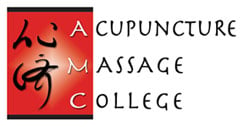Endometriosis is a common health condition in women in which tissue lining the uterus grows outside of the uterus into other areas. Endometriosis can cause lesions, nodules, tumors, and other abnormal (although usually benign) tissue growth which can result in pain, infertility and heavy periods.
These tissue growths tend to get bigger and the symptoms often get worse over time. Most endometriosis is found behind the uterus, on tissues connected to the uterus, on or under the ovaries, and on the bowels or bladder.
According to the Journal of the American Medical Association, endometriosis affects approximately 5 to 7 million women. There is no cure for endometriosis, but many allopathic therapies address the primary symptom of pain. Often pain medication and hormone treatment are recommended.
Traditional Chinese medicine (TCM) modalities are often used successfully in the treatment of a wide range of female gynecological disorders, including endometriosis. TCM assesses the condition based on differentiated pattern manifestations, specific to each individual.
Acupuncture points and Chinese herbal formulas facilitate the flow of energy through the body. These acupoints and herbs are utilized to break up stagnation, move blood and minimize pain. Depending on the TCM diagnosis of the individual, each acupoint and herb has specific therapeutic properties in the treatment of endometriosis. Acupuncture regulates the endocrine system and can act as an analgesic by elevating levels of endorphins in the blood.
Findings from a recent systematic review by Cochrane Researchers indicate that Chinese herbal medicine can relieve symptoms in the treatment of endometriosis and produces fewer adverse side effects compared with conventional drug treatments.
The review, comprised of two trials, included a total of 158 women. In one trial, Chinese herbal medicine provided symptomatic relief comparable to that provided by the hormonal drug gestrinone, but with fewer adverse side effects. In the other trial, Chinese herbal medicine was more effective than the hormonal drug danazol, and also produced fewer side effects.
"These findings suggest that Chinese herbs may be just as effective as certain conventional drug treatments for women suffering from endometriosis," says lead researcher Andrew Flower of the Complementary Medicine Research Unit at the University of Southampton.
In addition to acupuncture and Chinese herbal medicine, other TCM modalities utilized in the treatment of endometriosis may include moxibustion, qi gong and tui na.
For information about Acupuncture & Massage College’s Oriental Medicine and Massage Therapy programs call Joe Calareso, Admissions Director, at (305) 595-9500.
Traditional Chinese Medicine for Endometriosis
Posted July 28, 2009
by Acupuncture & Massage College

 (305) 595-9500
(305) 595-9500






